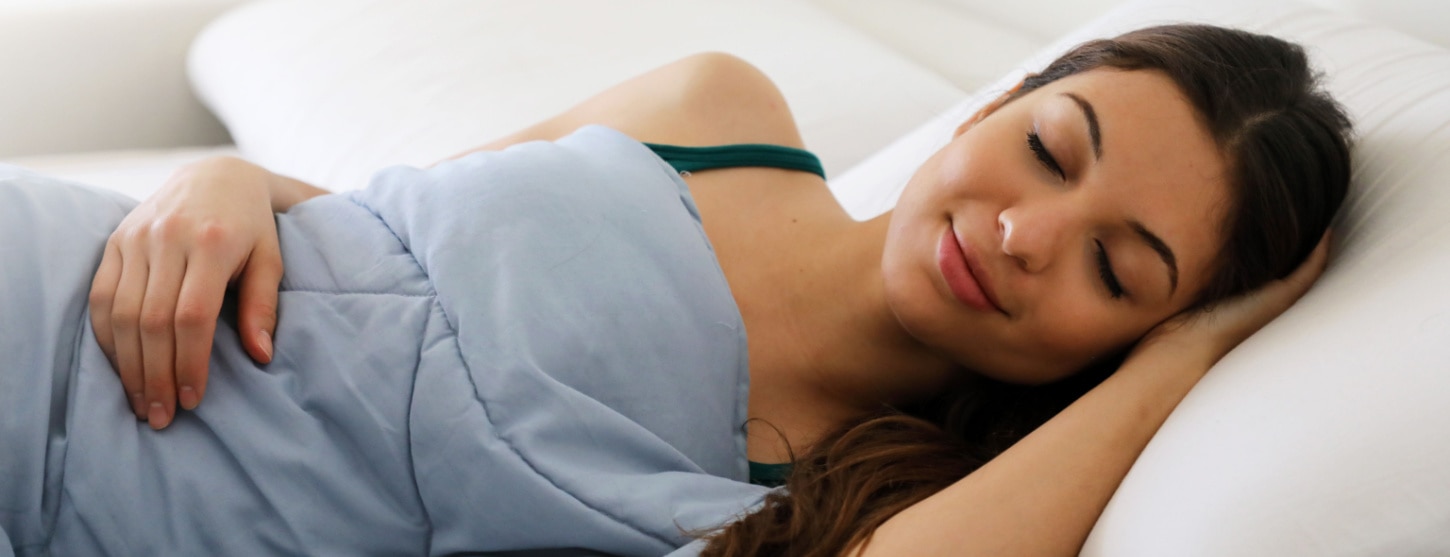B&C
|Carousel main title
Main title
Restless legs syndrome: Causes, treatment & signs
Our top picks
Helps control your sleep

H&B Expert
H&B Expert Sleep Unwind Ashwagandha Drink 300g
£20.99
Helps you unwind

H&B Expert
H&B Expert Sleep Unwind Tonic 150ml
£16.99
Less than 0.1g sugar per gummy

Starpowa
Starpowa Snooze Vitamin Black Cherry Flavoured 30 Gummies
Buy One Get One Free
£8.99
This means that the cause is unknown.
This means there is a specific cause, and it may be down to an underlying health condition or certain factors in your lifestyle.
Restless legs syndrome usually happens at night when you’re in bed, or when you’ve been sitting or lying down for a while.
While it’s not dangerous, RLS may be related to other health conditions and could have detrimental effects on other areas of your life.
Restless legs syndrome causes
If you’re pregnant, there’s a 1 in 5 chance you’ll experience restless leg syndrome in the last 3 months of your pregnancy.¹ We don’t always know why this is, though sometimes it’s down to iron deficiency anaemia.
The amount of blood in your body increases when you’re pregnant, so you need extra red blood cells. And that requires more iron…
As a result, many people become iron deficient when they’re expecting a baby. Speak to your GP about taking an iron supplement, as this may help to restore your energy levels and ease your nervous legs.
Restless legs syndrome in pregnancy usually goes away once you have your baby.
Even if you are not pregnant, general iron deficiency could be a cause of restless legs syndrome. Low iron levels can decrease your dopamine (the “feel-good hormone”). In turn, low dopamine can cause the muscle spasms that signify RLS.¹
Again, talk to your GP and they can decide whether an iron supplement is right for you. You might even find that your restless legs calm down.
Research has found links between genetics and idiopathic restless legs syndrome. If you’ve got an immediate family member with RLS, you’re also much more likely to experience tingly legs at night.⁷
While they may not directly cause it, chronic conditions like:
- Kidney disease (since you’re more likely to be anaemic and/or iron deficient)⁸
- Diabetes (if you have damage to your nerves)⁹
- Fibromyalgia¹⁰
- Rheumatoid arthritis (RA): present in up to 30% of people with RA¹¹
all increase your likelihood of RLS.
Lifestyle changes
Hygiene isn’t all about soap and water - who knew? The behaviours we practise to help us sleep well are called “sleep hygiene".
Everyone needs a different amount of sleep, but most adults will need anywhere from 7 to 9 hours a night.¹²
Practising healthy sleep habits can help you get a better night’s sleep overall and may reduce some of the stress that’s contributing to your restless legs syndrome.
- Find out how much sleep you should be getting for your age and stick to it!
- Try to go to bed and wake up at the same time each day
- Do your best not to oversleep, even if you’re still tired
- Avoid coffee, energy drinks, and other forms of caffeine in the afternoon and evening
- Keep your bedroom cool and your bed comfortable. Invest in the right mattress and pillows for you, or try out some cosy sheets or a weighted blanket - make your space “yours”
- Keep the room as dark as possible while you’re trying to sleep
- And we’ve all heard it - but no more phone scrolling until you pass out! This includes if you wake up at night
Some people prefer to get up and stretch their restless legs while others prefer to stay in bed. Do what feels best for you.
Trying to kick smoking or stick to the gym? Your everyday habits could contribute to your restless legs. We advise:
- Quitting smoking: as well as affecting your general health, it’s believed that it can aggravate RLS symptoms¹³
- Cutting down on caffeine, and not drinking it at all in the 6 hours before going to bed¹⁴
- Exercising regularly - even a daily walk can make all the difference.
Low blood sugar can also be a trigger for RLS. Try to avoid high-carbohydrate and high-sugar snacks before bed, and opt for something high in protein (like nuts, yoghurt, a protein shake, or certain cereals) to curb your sweet tooth and help keep your sugar levels stable.¹⁵
Iron deficiency anaemia is a common restless legs cause, but luckily, it’s fairly easy to treat. Your GP may prescribe you iron supplements to help with your iron deficiency.
In this case, your anaemia should start to go away and your restless legs may ease.
Some people may receive enough iron through supplements or their diet, but they might have a condition which means their body can’t use it properly.
In severe cases, your GP may prescribe you medication to help your body absorb iron (instead of, or on top of, iron supplements).
Dopamine agonists are a type of medication that can increase your dopamine levels. Low dopamine is thought to be a cause of RLS, so these may help with your restless legs.
However, discuss this thoroughly with your GP before taking any prescribed medicines. Some people find that dopamine agonists make them nauseous or very tired throughout the day.
There’s early research to suggest that magnesium deficiency is another reason we might develop RLS.¹⁶
Magnesium helps us maintain strong bones and muscles, a healthy heart, and it can help to regulate our stress levels.¹⁷ ¹⁸ ¹⁹
First, make sure you’re getting enough magnesium in your diet. You can find it in:
- Legumes (like edamame and black beans)
- Nuts and seeds
- Whole grains
- Fortified cereals
- Green leafy veg
- Milk and yoghurt
It’s important to focus on diet for most of your nutrition, but if you think you need some extra help, magnesium supplements can supply your daily recommendation.
You can also try home remedies for RLS using magnesium. Magnesium bath flakes, bath salts, gels, and magnesium oil spray could all help relieve your symptoms.
Regular bar soap also contains plenty of magnesium. We can’t prove or disprove this one, but some people swear by placing a bar of soap under the pillow for when their legs are feeling restless at night…²⁰
You might get some relief by:
- Massaging your legs
- Applying a warm compress
- Taking a warm bath
- Light walking, stretching, or yoga
RLS isn’t just annoying - it can be painful, too. If you’re experiencing restless leg pain, your usual painkillers should help to relieve them a little.
Please note that this isn’t a long-term solution, as you shouldn’t take painkillers often or for long periods. If you’re experiencing painful restless legs often, please speak to your GP instead.
It’s also important to note that if you are experiencing leg pain at night rather than the itching, restless feeling, this could be a symptom of an entirely different health condition, such as peripheral artery disease (PAD) or Chronic venous insufficiency (CVI). If you have any concerns about leg pain at night, please speak to your GP.
- https://www.nhs.uk/conditions/restless-legs-syndrome/
- https://www.anxietycentre.com/anxiety-disorders/symptoms/anxiety-and-restless-leg-syndrome/
- https://www.ncbi.nlm.nih.gov/pmc/articles/PMC2671944/
- https://health.clevelandclinic.org/10-ways-sleep-deprivation-affects-your-health/
- https://www.sleepfoundation.org/restless-legs-syndrome#
- https://cks.nice.org.uk/topics/restless-legs-syndrome/background-information/prevalence/
- https://medlineplus.gov/genetics/condition/restless-legs-syndrome/#inheritance
- https://www.kidneycareuk.org/about-kidney-health/living-kidney-disease/physical-health/restless-legs-syndrome/
- https://www.diabetes.co.uk/diabetes-complications/restless-leg-syndrome.html
- https://www.ncbi.nlm.nih.gov/pmc/articles/PMC2952743/
- https://www.ncbi.nlm.nih.gov/pmc/articles/PMC3694367/
- https://www.nhs.uk/conditions/insomnia/
- https://www.ncbi.nlm.nih.gov/pmc/articles/PMC2952755/
- https://www.ncbi.nlm.nih.gov/pmc/articles/PMC3805807/
- https://www.healthline.com/health/restless-leg-syndrome/sleep-tips#1
- https://pubmed.ncbi.nlm.nih.gov/9703590/
- https://www.ncbi.nlm.nih.gov/pmc/articles/PMC3775240/
- http://circ.ahajournals.org/content/127/1/33.long
- https://www.ncbi.nlm.nih.gov/pmc/articles/PMC5452159/#B46-nutrients-09-00429
- https://restlesslegssyndrome.sleep-disorders.net/living/soap-home-remedy













